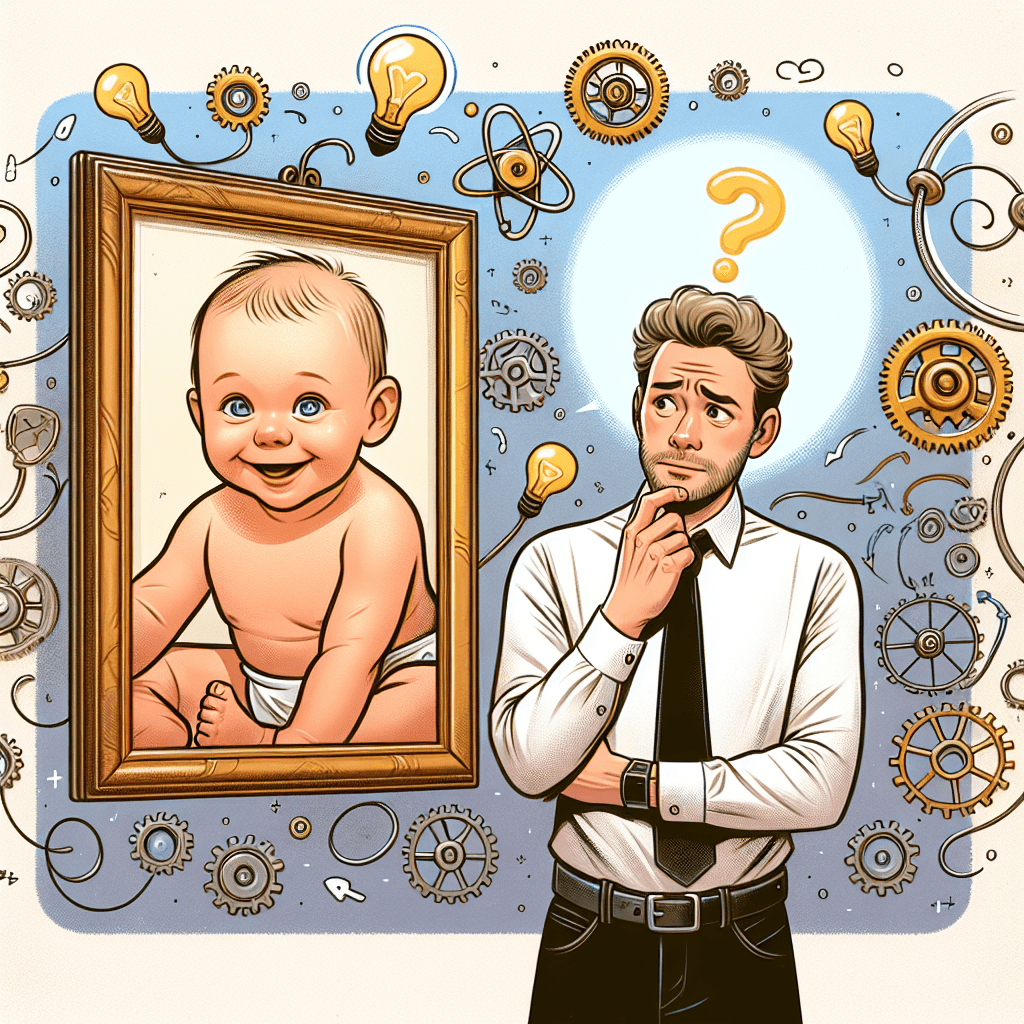Why can't most people remember being a baby
Your first words, your first steps, your first birthday—they all happened, yet the memories are a complete blank. It's not a mistake; it's a fascinating and deliberate process of your developing brain.


Too Long; Didn't Read
Your brain was too undeveloped to form lasting memories, and without language, you couldn't store experiences as stories to recall later.
The Great Memory Blank: Why Can't Most People Remember Being a Baby?
What is your very first memory? Take a moment to think about it. For most of us, that memory is probably from around age three or four—perhaps a birthday party, the first day of school, or a family vacation. But what about before that? The first year of life is a whirlwind of new experiences, from first words to first steps, yet it exists for most of us as a complete blank. This common phenomenon is known as "infantile amnesia," and it has fascinated psychologists and neuroscientists for over a century. This post will delve into the leading scientific theories that explain why our earliest, most formative years are lost to conscious memory.
What is Infantile Amnesia?
Infantile amnesia, or childhood amnesia, is the inability of adults to retrieve episodic memories (memories of specific events) from before the age of two to four years. While early psychoanalysts like Sigmund Freud theorized that we actively repress these early memories due to their traumatic or sexual nature, modern science points to a far less dramatic culprit: the developing brain. It’s not that nothing was happening or that we weren't learning; in fact, the infant brain is a powerhouse of learning. The issue lies in how those early experiences were encoded and stored.
It's All in the Brain: Neurodevelopment and Memory
The primary reason for infantile amnesia is that the key brain structures responsible for forming and storing long-term, autobiographical memories are still under construction.
The Immature Hippocampus
The hippocampus is a critical region of the brain for converting short-term memories into lasting ones. In infants and toddlers, the hippocampus is highly active but also immature. A significant process called neurogenesis, the creation of new neurons, occurs at a rapid rate in the infant hippocampus. While this is essential for building a healthy brain, studies suggest this high rate of cell production can be disruptive. The constant introduction of new neurons can effectively "overwrite" or destabilize existing memory circuits, making it difficult for early memories to be stored permanently.
The Underdeveloped Prefrontal Cortex
The prefrontal cortex, responsible for higher-order functions like memory retrieval, context, and organizing events chronologically, is one of the last brain regions to fully mature. An infant’s brain can form associations and learn skills, but it lacks the sophisticated filing system of the prefrontal cortex to tag a memory with context (the who, what, where, and when) and store it in a way that can be easily retrieved years later.
No Words, No Memories? The Language Connection
Another compelling theory revolves around the development of language. Many psychologists argue that language provides the structure, or "scaffolding," we need to organize our personal memories into a coherent narrative.
Consider how you recall an adult memory—you likely think of it as a story with a beginning, middle, and end. Before we have the linguistic ability to form these narratives, our experiences are processed in a more fragmented, non-verbal way. These pre-verbal memories are difficult for our language-dominant adult brains to access and translate. As we learn to talk, we also learn how to remember, often by sharing stories with parents and family, which helps solidify events into lasting memories. Without words, the experiences of infancy remain disconnected and inaccessible.
But Babies Do Remember, Don't They?
It's crucial to understand that infantile amnesia doesn't mean babies can't form any memories at all. They are constantly learning and remembering, but they rely on a different type of memory.
- Explicit Memory: This is the conscious, intentional recollection of factual information, previous experiences, and concepts. This is the type of memory that is lost to infantile amnesia.
- Implicit Memory: This is an unconscious form of memory expressed through performance, such as skills and procedures. A baby remembering their parent’s face, learning to crawl, or knowing that crying brings comfort are all examples of implicit memory at work.
These early implicit memories are fundamental. They shape our attachments, behaviors, and understanding of the world, forming the very foundation of our personality, even if we can't consciously recall the specific events that created them.
Conclusion
The mystery of why we can't remember being a baby isn't due to a lack of experiences but rather a combination of critical developmental factors. The rapid growth of an immature hippocampus, an underdeveloped prefrontal cortex, and the absence of language create a perfect storm for infantile amnesia. While you may never be able to consciously recall your first laugh or your first steps, those moments are not truly gone. They are woven into the very fabric of who you are, stored as implicit memories that shaped your brain and guided your development into the person you are today.


